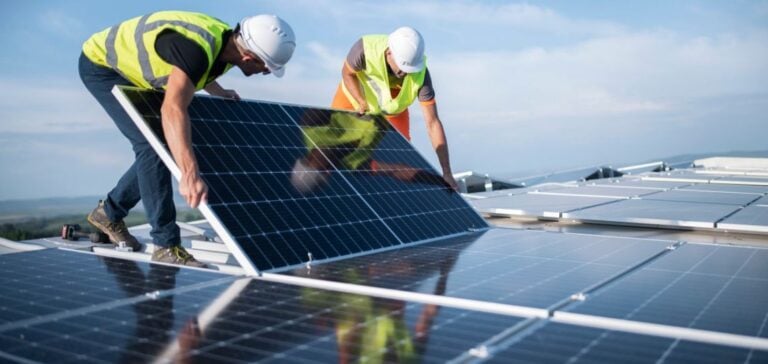India is taking a major step in its energy policy by mandating the exclusive use of locally-produced solar panels starting in 2026. This decision, issued by the Indian Ministry of Renewable Energy, aims to decrease the country’s reliance on Chinese imports, which currently supply 70% of the national solar production capacity.
Indian companies, particularly Reliance Enterprises and Tata Power, are key players in the sector and heavily depend on Chinese equipment to meet the growing demand for solar energy. While government projects are already subject to similar requirements, the new regulation will now apply to all projects submitted after the publication of this decree.
A Surge in Local Production
To comply with these requirements, only photovoltaic modules made from locally-manufactured cells will be permitted. However, the current production capacity of solar cells in India is deemed insufficient. The government has committed to publishing a list of approved manufacturers to ensure equipment complies with the new standards. This list, still under development, is expected to encourage significant growth in national production starting next year.
According to a report by Mercom India, a Bangalore-based consultancy, India’s solar panel production is expected to reach 95 gigawatts by the end of the year. This figure underscores the rapid growth of the local solar industry, driven by supportive policies and increasing demand for sustainable energy solutions.
A Strategic and Economic Issue
This decision aligns with a strategic goal to reduce imports, primarily from China, while bolstering domestic manufacturing capacity. The development of the local solar sector also presents an opportunity to create jobs and stimulate the economy. However, challenges remain, particularly the need to rapidly scale up solar cell production to meet future demand.
The decree specifies that this new requirement will apply regardless of project commissioning dates, further emphasizing the government’s commitment to a sovereign and sustainable energy transition.






















